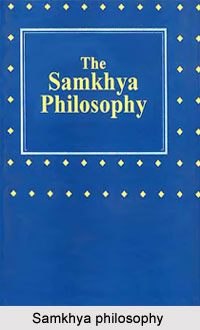 Purusha is the `self`, which pervades the universe in Hindu philosophy. In Samkhya philosophy purusa is the first principle (tattva) pure consciousness, dormant, unchanging and witness to the unconscious dynamism of Prakriti which is the material world containing all our organs, senses and intellectual faculties.
Purusha is the `self`, which pervades the universe in Hindu philosophy. In Samkhya philosophy purusa is the first principle (tattva) pure consciousness, dormant, unchanging and witness to the unconscious dynamism of Prakriti which is the material world containing all our organs, senses and intellectual faculties.
The many facets of Purusha are considered to be the human`s mind interpretation according to Vedic divinities. Purusha is described as primitive giant that is sacrificed by the gods and from whose body the world and the varnas (castes) are built. He is described as having a thousand heads and thousand feet. He originated from the Viraj the female creative principle; from which he is reborn in turn before the world was made out of his parts .
The Vedic chants were first created in the sacrifice of Purusha. From the various parts of his body it is believed the four varnas were born, Brahmins from Purusha`s mouth, the Kshatriyas from his arms, the Vaishyas from his thighs and the Shudras from his feet .Not only the four varnas the moon was also born from his spirit, the Sun from his eyes and the Heaven from his skull. From his mouth Indra and Agni emerged. As the Dalits or Untouchables, were not considered to be born of Purusha so they are seen as people from outside the cosmic system.












